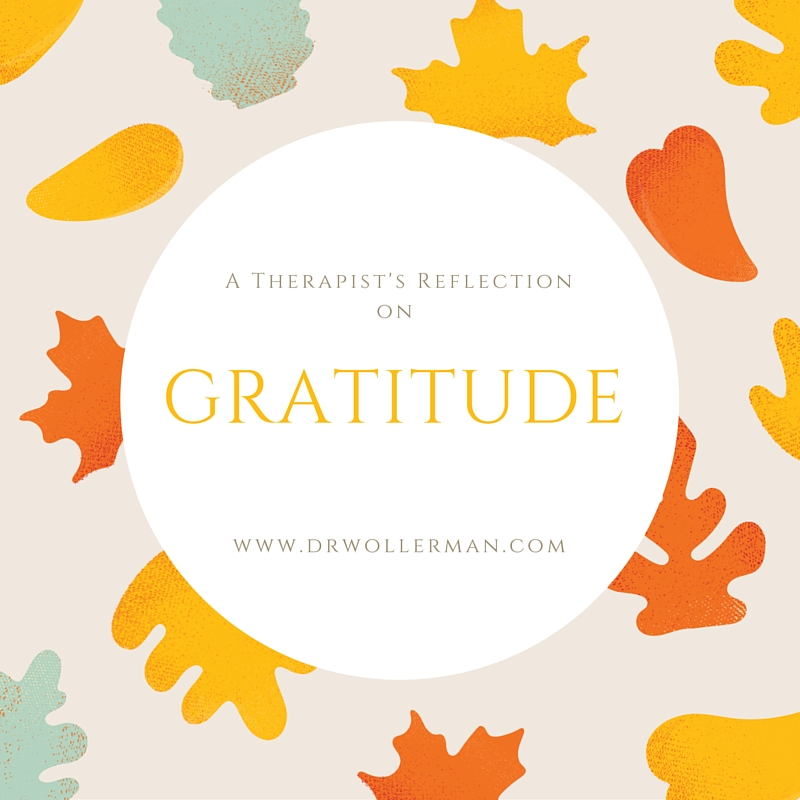I know, I know, setting an intention is very “in” right now and fits right in line with all the holistic, yoga, wellness movement information that is out there. Interestingly enough, as much as “setting an intention” is a bit of a fad right now, it can actually be really beneficial and helpful in making changes. I’ll share a bit about my personal experience with this and how I choose to set an intention through choosing one word to focus on throughout the year.
1 Comment
 Setting yourself up for success in the new year… why it’s important to have a “year in review” This is the first blog in my blog series that is dedicated towards growth, change, setting intentions, and renewal. As 2016 draws to a close and I prepare for 2017, I am feeling inspired to discuss ways to make changes in a more effective way. I am also setting a personal goal to get back to blogging more as I realized how much I have missed it over the past year! So, this blog is dedicated to discussing the importance of reviewing your growth and progress over the past year (or whatever time frame feels helpful to you!). I believe that it is so valuable to have markers in time that help signal us to sit back and contemplate how things are going. For some, that may be attending therapy on a routine basis to check in with yourself and for others, changes in the season, anniversaries, or the approaching New Year might signal a time of reflection for you. As a therapist, I contemplate progress and change often! Here are 5 Questions that may guide you in completing your own “Year In Review” as the first step in your overall process of renewal, reflection, and further growth and change.
Make sure to set aside some time to sit back and reflect on how your year has gone. Maybe you grab a coffee, go for a walk, sit at a favorite place of tranquility. Maybe you squeeze this into your routine at night when the kids are in bed. Either way, try to take some time to really sit with these questions to help you process your year fully as these questions and your experience of them will guide your intention for the upcoming year. The next blog in this series will be all about intention setting for the New Year! I hope you enjoy it and take the time to read it! Also, I wanted to let all of my readers know that I have super exciting news… Not only am I setting an intention for the New Year but I am also announcing a huge step in my practice in our transition to Thrive Therapy Studio! This will be a collaborative group practice where we will be able to expand our reach and ability to help people. Plus, I got to make a cool logo and develop a whole new vibe to my office. So exciting! Anyways, please feel free to sign up for the newsletter on the website at www.thrivetherapystudio.com when it launches January 1st, 2017! Thank you all for reading and for your support! Please feel free to share your experiences and thoughts on this blog in the comments! Our newest employee, Dr. Maria Fowlks, reflects on the reasons she loves being a therapist in our latest blog post. Being a therapist brings me so much joy. I get to connect with individuals from all walks of life and see the world through their lens. There are many reasons why I love being a therapist. I will share 6 of these reasons below. 1. It is a challenge. Therapy is hard work, not just for the client but for the therapist too. Therapy is like an intricate dance, and it is important for the therapist to know when to move delicately, move boldly, and when to let the client do a solo while you cheer them on. Although the work can be challenging, it is incredibly rewarding. 2. It is an honor and privilege to be apart of someone’s journey. Being given access into a person’s thoughts and feelings as well as seeing a person at their most vulnerable, is truly a privilege. In a fast past society where time seems to fly by, being able to be present and in the moment with another human being is a wonderful gift. It is an honor to be able to just BE with a client, with no agenda, in whatever it is they are going through. 3. I enjoy my role as a guide and a cheerleader. It is a pleasure working alongside my clients, supporting, guiding, and rooting them on as they brave the challenges life can sometimes bring. The reward of being able to witness my clients learn about themselves and grow is invaluable. 4. It is inspiring. I too learn and evolve. My clients are as much my teachers as I am theirs. My approach to therapy is a partnership, and in that partnership there is learning occurring on both sides. My clients never cease to amaze and inspire me with their strength, courage, and resilience. 5. Therapy is dynamic. There is never a dull moment. Each client is so different and brings their own life experiences and challenges and I get to come along on the journey, even if it is for a brief period of time. Being multiracial, I value diversity and multiculturalism, and enjoy the diverse array of clients I see. 6. I am there for the best and the worst. I get to witness the human experience. It’s not always pretty, but it is real. In a society where it is unclear what is real sometimes, I am grateful to be part of the REAL human experience and it is truly an honor. Thank you for reading! For more information about Dr. Fowlks and her services, please contact her at 858.401.6929 or check her profile out here.  Gratitude is a hot topic this time of year and while I try to practice gratitude all year, I certainly emphasize it during the holidays as well. Practicing gratitude is crucial to building an authentic and vulnerable life with priorities that lead to true value, not just material wealth. There are so many things in life that I am grateful for – my fiancé, my work and private practice, my loving family, living in beautiful San Diego and the list could go on and on! Rather than create some long list of things that I am grateful for, I wanted to write something a little different. One of the main things that I am grateful for is being allowed the privilege to walk with my clients through their struggle and their lives. Every day at work I feel truly blessed to be able to support and help people while they are going through challenges as well as through their successes. I recognize that this is a unique position that I have in people’s lives and the blessings that it brings my clients are amazing but the blessings are very real for me as well. Every day that I go to work, I am reminded of the strength and courage people have as well as their ability to overcome their challenges. A quote that I use often in my practice is “I’m thankful for my struggle, because without it I wouldn’t have stumbled across my strength (Alex Elle).” I have found this to be so very true both personally and professionally. Often, as people, we want to focus on the shiny, happy moments in our lives and forget about the rest. However, I believe that it’s more important to focus on everything and the journey of life, with all of it’s ups and downs. Every day that I work with my clients is a day that I help them focus on the strength and the rebuilding that can come after a fall and for that, I am eternally grateful to them. Through their experiences I have found my own strength, courage, and vulnerability to rebuild my life. There just aren’t enough words to express how valuable that is to me! I am honored to be taking the time to introduce my Psychological Assistant and colleague to all of you through the following blog post. Dr. Rosengren and I have known each other professionally for many years now and recently she began working at my private practice, which has been a wonderful experience for both of us. She is a wonderful psychologist on so many levels and has carefully cultivated her expertise in supporting individuals and their families who struggle with or have been affected by substance use. She is also a gifted therapist with teens and adults who are experiencing anxiety, depression, relationship challenges, and issues with self-worth and shame. I respect her caring, supportive nature and her ability to connect with her clients and have enjoyed witnessing her work as a supervisor! I hope you enjoy her first blog! 5 Common Myths About Treatment by Dr. Julia Rosengren “A theory that is wrong is considered preferable to admitting our ignorance.” – Elliot Vallenstein, Ph.D. Here is a list of common misconceptions about substance use treatment from my experience in the field. Myth #1: “I have a chemical imbalance. Talking doesn’t seem helpful.” From my experience, this way of thinking actually hinders treatment progress. Not only is this an oversimplification of what occurs in the brain, but externalizing the problem allows for feelings of helplessness. For example, if a problem is due to deficits in one’s brain chemistry, then theoretically there is little someone can do to remedy the issue besides take a pill to increase serotonin levels. The idea of a “quick fix” is alluring for many reasons, but sadly it does not exist. Everything in our life alters our brain chemistry to some extent, including all forms of psychotherapy. While biological factors are undeniable, our environment shapes us just as much. This is good news because it means that we can learn how to change thinking and behavioral patterns, alter attachment styles, and learn how to cope more adaptively. In doing so, one gains self-confidence and a sense of mastery over their life. Thus, medication combined with psychotherapy is usually the most effective route to take. Myth #2: “I’m ashamed I need help. I should be able to do this, but I guess I’m just weak.” This one makes me cringe each time I hear it. Emotional strength is the opposite of what many of us have been taught. We all need help from others at times. Knowing when to reach out is courageous and shows great emotional strength. Hiding our emotions and keeping them stuffed inside can be quite damaging to our mental health as well as our interpersonal relationships. Doing this is akin to shaking a soda can and then opening it up. Eventually the emotions will leak out or burst in a way that is probably unhelpful. The more we understand this, the less we will need to concern ourselves with the stigma surrounding mental health. Hopefully the end result will be more people getting assistance with their suffering. Myth #3 “I don’t understand why my child is using and/or sad. They have everything they could want. They have no reason to be unhappy.” People often can appear to have all that they need (e.g., money, love, great family, etc.), but that does not mean they have no reason to struggle emotionally. For example, a son may not feel that he can live up to his parents’ success causing ambivalence and depression. Or despite how devoted a woman’s husband may be to her, she could unconsciously believe that she does not deserve to be loved as a result of previous experiences. No matter what someone seems to have, their distress is real and meaningful. From my experience, the more we acknowledge, validate, and try to understand another person’s pain, the better the prognosis for the person that needs help. Myth #4 “My daughter has a unique situation. She is dual-diagnosed. She has horrible depression and anxiety on top of her drinking issues.” It’s unfortunate that addiction and substance use are often seen as completely separate from other mental health concerns. Whether the addiction came before the mental health problem(s) or vice versa, they often go hand in hand. For instance, a college student may have always had underlying anxiety, but was not completely aware of what it was called. When he goes to college and tries marijuana for the first time, he may feel a sense of calm that he did not know he could feel before. With time he may be able to identify what makes marijuana enjoyable to him; it allows him to quell his anxiety. Treatment that addresses both the addiction and mental health problems seem to be the most efficient way to assist in maintaining recovery. Myth #5: “Getting success rates of treatment facilities makes it clear which provider to go to.” The definition of “success” may vary, depending upon who you ask. For some concerned significant others, the answer may be for their loved one to never use again. For others, it may be an improved quality of life for themselves and their loved ones. From a professional perspective, my definition of success is based on any improvement in emotional growth or reduction in substance use. Many times one of these leads to another. Change does not happen overnight and the more we acknowledge and praise the small steps, the closer individuals move toward the overall goal. That being said, it is understandable to get frustrated when seeing or experiencing slow movement. However, try to remember what it was like to learn cursive or memorize the times tables. Some people learn more quickly than others for various reasons and some need extra help. Be kind to yourself and your loved ones while they are in treatment. Without compassion there is often little to motivate continued change. If you would like to talk further with Dr. Rosengren or to hear more about her services, fees, and specializations, please feel free to contact her! See the news section of my website for more information here!  One question that I get a lot, particularly this time of year, which is known to families as “back to school” time, is “How do I prepare my kids to go back to school?” I thought it might be helpful to compile some tips for just those questions! Helpful Tips:
I hope these tips are useful and helpful for you and your family! If at any point, you would like some help preparing your child for the transition back to school or in making a difficult transition more successful after the year has started, feel free to contact me to schedule an appointment! Thank you for reading! Feel free to add in any tips of your own in the comments section!  I recently went with a group of therapist friends to see the movie, Inside Out, which is, as many other child therapists have already noted, a child therapist’s dream movie. This is for a few reasons but primarily because it is based on the emotions or “voices” in our heads and the movie did a pretty wonderful job of demonstrating what each emotion is all about and what it looks like without the other emotions combined with it. Fear seemed to represent anxiety and sadness was certainly a great representation of depression. Anger was quite over the top anger that I often see with some of the kids I work with who have difficulties managing their big angry feelings. The coolest thing about this movie is that it takes emotions and makes them an interesting and okay thing for kids to talk about, which can be unusual in our current culture that focuses a lot on happiness and avoidance of most other emotions. Some of the kids that have come into my office since seeing the movie have been more open to share about their feelings, using the movie as their platform for the conversation. As I stated before, this is a child therapist’s dream! Another element of the movie that I really appreciated is that you get to watch an evolution of the characters, where they grow to understand that each emotion is important and that their person, Riley, will cope and live her best life if they are all working together, rather than just focusing only on Joy (which was how the movie began). I fundamentally believe that all of our emotions are important and useful tools in our lives and that issues arise when they get out of balance and we rely on one emotion and neglect the others. As such, this message was something I really appreciated. Here are some questions and discussion starters that I have been using with kids in my office to help them open up about their feelings while also feeling like they are talking just about the movie:
I can’t say enough how impressed I was with the movie and how easy it was to relate to it without having an over the top, educational or therapist vibe! I would highly recommend that any parent who is interested in talking to their child more about their emotions go see the movie with their child and then discuss it afterwards. Thanks for reading!  Things to know when going to therapy: Going to therapy can be hard. Really hard. So hard that you might not want to do it. However, going to therapy is also amazingly rewarding and a wonderful step towards personal growth and changing your life. The following is a list of things that I wish people knew before going to therapy (or that my clients knew while coming to therapy as these tend to be hot topics in my office!). Here we go, things I wish my clients knew before and during therapy:
I hope this list is helpful in orienting my clients and other people to therapy and what therapy is all about. If you would like to speak with me about how my services might be helpful to you, please feel free to contact me! Thanks for reading! The teenage (and often pre-teen) years are known to be a challenging time for everyone (parents, other siblings, teachers, and the teen themselves). I know I remember how challenging my teenage years were! Teens are generally known to be a walking contradiction and this can be so difficult to know how to approach. They want your attention and time but then they want you to disappear at other times. They want your advice, then they are angry that you gave it. At times, nothing you do will seem right to them! One of the most important conversations I have with parents in my office is discussing the fact that all of the above is generally typical for teen development.
In essence, teenage years are a period of growth and development as an individual outside of the family. Teens are most often craving independence and autonomy, much like the toddler or “terrible 2” years. It is vital to your child’s development that they are permitted to stretch their wings a bit, within reason, so that they are able to develop a sense of self-efficacy around their ability to effectively interact with the world. Will they make mistakes? Most likely they will. However, my view is that life is not about avoiding mistakes but making lots of mistakes and hopefully learning from each one. Plus, it’s important for a person to cope through their mistakes and to make some mistakes while the stakes are a bit smaller (prior to adulthood). Here are some tips to help you along the way:
Thank you for reading! Please feel free to share this information or leave other tips and ideas for parenting teens in the comments! Thanks!  One of my favorite quotes is the title of Brene Brown’s recent book, “Dare Greatly” and comes from the following excerpt of Theodore Roosevelt’s speech at the Sorbonne in Paris, France on April 23, 1910: “It is not the critic who counts; not the man who points out how the strong man stumbles, or where the doer of deeds could have done them better. The credit belongs to the man who is actually in the arena, whose face is marred by dust and sweat and blood; who strives valiantly; who errs, who comes short again and again, because there is no effort without error and shortcoming; but who does actually strive to do the deeds; who knows great enthusiasms, the great devotions; who spends himself in a worthy cause; who at the best knows in the end of the triumph of high achievement, and who at the worst, if he fails, at least fails while daring greatly, so that his place shall never be with those cold and timid souls who neither know victory nor defeat.” I have to say that I absolutely love this quote and the way it talks about how we may fail and fail again while we are on our way to success. What a helpful reminder to those of us (like me) who struggle with making mistakes and with placing ourselves in a daring spot in the arena. I’ve been reflecting this week on many things including how we let go of things that do not serve us, such as our expectations of ourselves. I believe part of that process is letting go of our pasts and expectations of ourselves by moving into greater daring positions in our day to day life. It’s almost impossible to stay rooted in our heads when we are working towards a new challenge and opportunity. I also believe that working on our self-care, self-compassion, unrealistic expectations of ourselves, and the way we think about ourselves and the world are dramatically important in allowing ourselves to surrender and then step into the power of vulnerability through daring greatly. Often, I find my greatest opportunities for growth in my life have come from entering into challenging situations and allowing myself to surrender to them while allowing them to mold me into a different, stronger version of myself. One particular example of how I impaired my own success by my expectations and thoughts about myself comes from an experience I had running (eh, perhaps more jogging or walking at times) several years ago. The truth about me is that I truly have never enjoyed running, even during my high school soccer and tennis days. Running for me has been a chore and something that I did either because I had to for a team or because I thought it was the best way to become more physically fit. Beyond just running though, I have always been someone who struggled with being athletic… not fast enough, can barely throw and catch, clumsy, afraid of heading the ball in soccer. You get the idea. So, pretty early on I think I interpreted all of this to mean that there are just certain things I can’t do – most being physical things of course since that is a big area of challenge for me. With that background, I’ll return to my story about running a few years ago. After I took on the challenge of walking in the breast cancer 3 Day walk in San Diego in 2007, I honestly could not stomach the idea of walking for a while! This led me to dive into training myself to run again. The interesting part of it was that I actually enjoyed the process and pushing myself further each time I ran. After a while, I somehow had gotten into the habit of running for 30 minutes at a time, which for me is quite an accomplishment so I was pretty happy about it. Interestingly though, I found myself habitually stopping at the 30 minute mark and not pushing myself any further. Somewhere in my head I had decided that was all I could do. One day I took a chance and kept going… I believe I ran for about ten more minutes pretty successfully! I still remember having this huge moment of clarity where I thought, “imagine what I could do if I got out of my own way.” A light bulb went off in my head and I realized just how much my thoughts and expectations of myself could limit me. This moment still stands out to me because I think we all chronically believe different things about ourselves that can be so self-fulfilling and self-defeating and we rarely take the time to challenge those thoughts. In the spirit of taking on great challenges and “daring greatly,” I think we all need to take some time to evaluate our thoughts, preconceived notions, and expectations for ourselves to identify where we might be holding ourselves back without even realizing it! Once we see some of those areas, I think it is easier to push ourselves to step into the arena, make some mistakes, but at least be fighting rather than leaving ourselves on the sidelines of our lives. Thank you for reading! Please feel free to share your own experiences and thoughts in the comments section! |
AuthorHi everyone! I am excited to add a blog section to my site where I will be able to share with you some more information about me, helpful tips, and support. As you know from the rest of my website, I work with children, teens, and adults and as such, the topics will vary pretty widely. Archives
December 2016
Categories |


 RSS Feed
RSS Feed